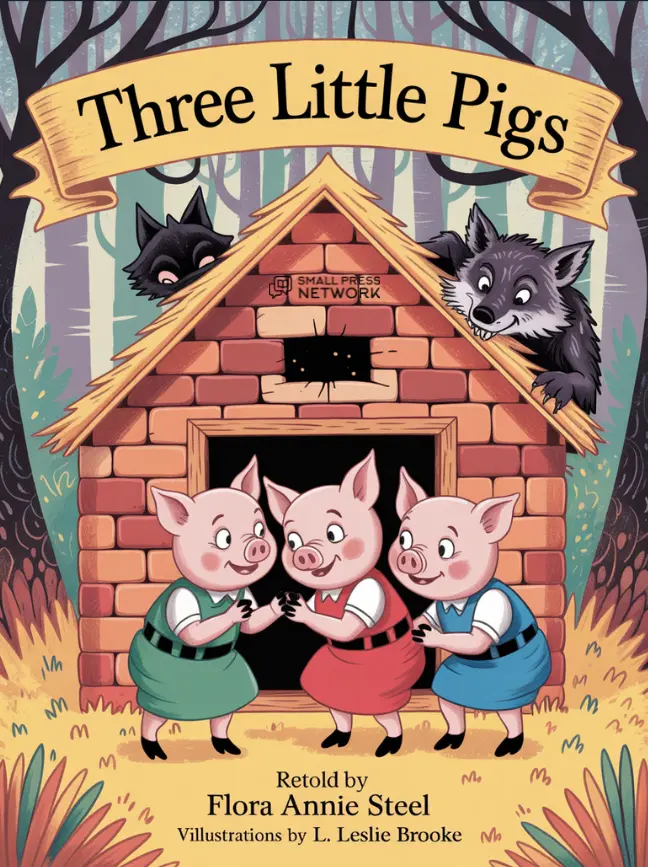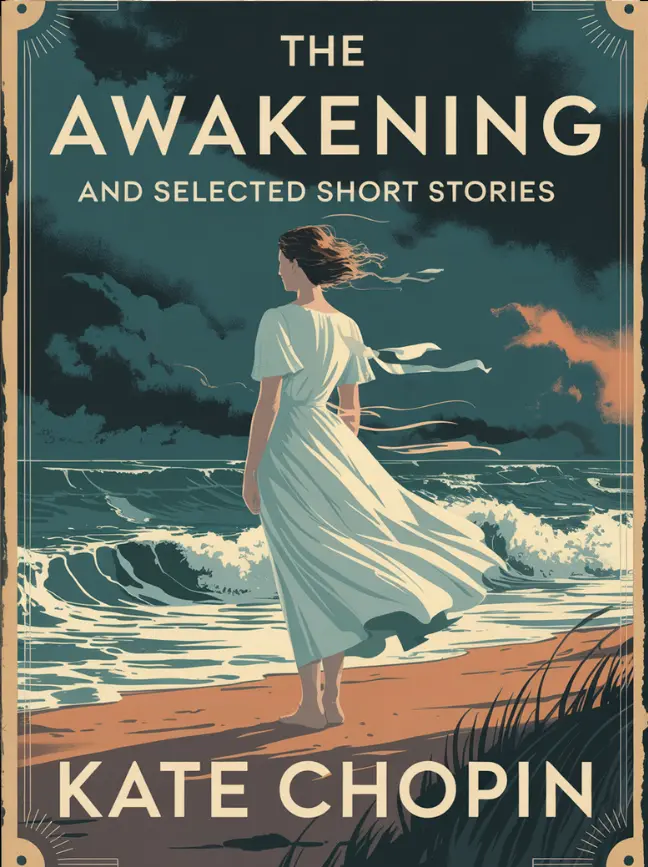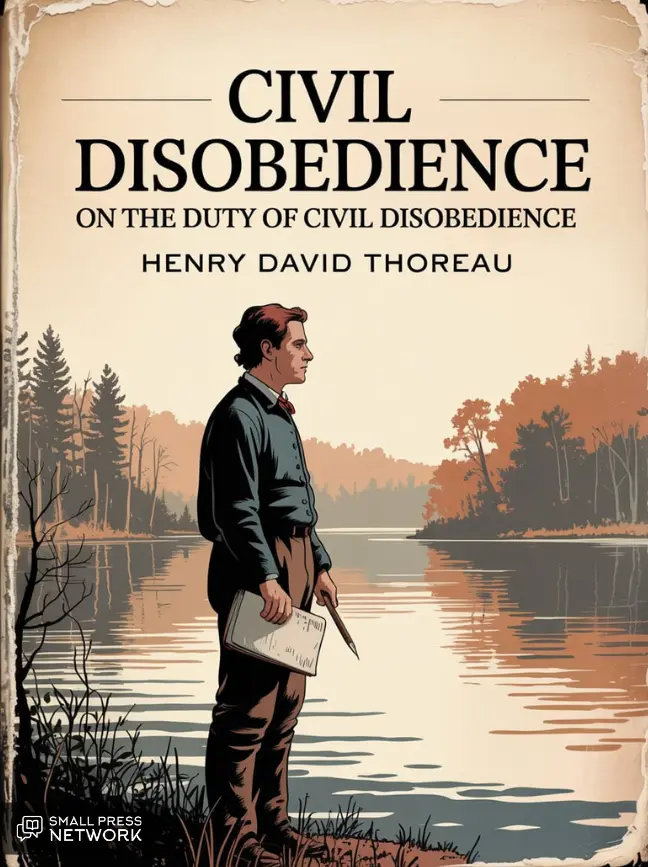755
Chapter IV
The Council of War began to assemble at two in the afternoon in the better and roomier part of Andrew Savostyánov’s hut. The men, women, and children of the large peasant family crowded into the back room across the passage. Only Malásha, Andrew’s six-year-old granddaughter whom his Serene Highness had petted and to whom he had given a lump of sugar while drinking his tea, remained on the top of the brick oven in the larger room.
Malásha looked down from the oven with shy delight at the faces, uniforms, and decorations of the generals, who one after another came into the room and sat down on the broad benches in the corner under the icons. “Granddad” himself, as Malásha in her own mind called Kutúzov, sat apart in a dark corner behind the oven. He sat, sunk deep in a folding armchair, and continually cleared his throat and pulled at the collar of his coat which, though it was unbuttoned, still seemed to pinch his neck. Those who entered went up one by one to the field marshal; he pressed the hands of some and nodded to others. His adjutant Kaysárov was about to draw back the curtain of the window facing Kutúzov, but the latter moved his hand angrily and Kaysárov understood that his Serene Highness did not wish his face to be seen.
Round the peasant’s deal table, on which lay maps, plans, pencils, and papers, so many people gathered that the orderlies brought in another bench and put it beside the table.
Ermólov, Kaysárov, and Toll, who had just arrived, sat down on this bench. In the foremost place, immediately under the icons, sat Barclay de Tolly, his high forehead merging into his bald crown. He had a St. George’s Cross round his neck and looked pale and ill. He had been feverish for two days and was now shivering and in pain. Beside him sat Uvárov, who with rapid gesticulations was giving him some information, speaking in low tones as they all did.
Chubby little Dokhtúrov was listening attentively with eyebrows raised and arms folded on his stomach. On the other side sat Count Ostermann-Tolstóy, seemingly absorbed in his own thoughts. His broad head with its bold features and glittering eyes was resting on his hand.
Raévski, twitching forward the black hair on his temples as was his habit, glanced now at Kutúzov and now at the door with a look of impatience. Konovnítsyn’s firm, handsome, and kindly face was lit up by a tender, sly smile. His glance met Malásha’s, and the expression of his eyes caused the little girl to smile.
They were all waiting for Bennigsen, who on the pretext of inspecting the position was finishing his savory dinner. They waited for him from four till six o’clock and did not begin their deliberations all that time but talked in low tones of other matters.
Only when Bennigsen had entered the hut did Kutúzov leave his corner and draw toward the table, but not near enough for the candles that had been placed there to light up his face.
Bennigsen opened the council with the question: “Are we to abandon Russia’s ancient and sacred capital without a struggle, or are we to defend it?” A prolonged and general silence followed. There was a frown on every face and only Kutúzov’s angry grunts and occasional cough broke the silence. All eyes were gazing at him. Malásha too looked at “Granddad.” She was nearest to him and saw how his face puckered; he seemed about to cry, but this did not last long.
“Russia’s ancient and sacred capital!” he suddenly said, repeating Bennigsen’s words in an angry voice and thereby drawing attention to the false note in them. “Allow me to tell you, your excellency, that that question has no meaning for a Russian.” (He lurched his heavy body forward.) “Such a question cannot be put; it is senseless! The question I have asked these gentlemen to meet to discuss is a military one. The question is that of saving Russia. Is
756
it better to give up Moscow without a battle, or by accepting battle to risk losing the army as well as Moscow? That is the question on which I want your opinion,” and he sank back in his chair.
The discussion began. Bennigsen did not yet consider his game lost. Admitting the view of Barclay and others that a defensive battle at Filí was impossible, but imbued with Russian patriotism and the love of Moscow, he proposed to move troops from the right to the left flank during the night and attack the French right flank the following day. Opinions were divided, and arguments were advanced for and against that project. Ermólov, Dokhtúrov, and Raévski agreed with Bennigsen. Whether feeling it necessary to make a sacrifice before abandoning the capital or guided by other, personal considerations, these generals seemed not to understand that this council could not alter the inevitable course of events and that Moscow was in effect already abandoned. The other generals, however, understood it and, leaving aside the question of Moscow, spoke of the direction the army should take in its retreat. Malásha, who kept her eyes fixed on what was going on before her, understood the meaning of the council differently. It seemed to her that it was only a personal struggle between “Granddad” and “Long-coat” as she termed Bennigsen. She saw that they grew spiteful when they spoke to one another, and in her heart she sided with “Granddad.” In the midst of the conversation she noticed “Granddad” give Bennigsen a quick, subtle glance, and then to her joys she saw that “Granddad” said something to “Long-coat” which settled him.
Bennigsen suddenly reddened and paced angrily up and down the room. What so affected him was Kutúzov’s calm and quiet comment on the advantage or disadvantage of Bennigsen’s proposal to move troops by night from the right to the left flank to attack the French right wing.
“Gentlemen,” said Kutúzov, “I cannot approve of the count’s plan. Moving troops in close proximity to an enemy is always dangerous, and military history supports that view. For instance…” Kutúzov seemed to reflect, searching for an example, then with a clear, naïve look at Bennigsen he added: “Oh yes; take the battle of Friedland, which I think the count well remembers, and which was… not fully successful, only because our troops were rearranged too near the enemy….”
There followed a momentary pause, which seemed very long to them all.
The discussion recommenced, but pauses frequently occurred and they all felt that there was no more to be said.
During one of these pauses Kutúzov heaved a deep sigh as if preparing to speak. They all looked at him.
“Well, gentlemen, I see that it is I who will have to pay for the broken crockery,” said he, and rising slowly he moved to the table. “Gentlemen, I have heard your views. Some of you will not agree with me. But I,” he paused, “by the authority entrusted to me by my Sovereign and country, order a retreat.”
After that the generals began to disperse with the solemnity and circumspect silence of people who are leaving, after a funeral.
Some of the generals, in low tones and in a strain very different from the way they had spoken during the council, communicated something to their commander in chief.
Malásha, who had long been expected for supper, climbed carefully backwards down from the oven, her bare little feet catching at its projections, and slipping between the legs of the generals she darted out of the room.
757
When he had dismissed the generals Kutúzov sat a long time with his elbows on the table, thinking always of the same terrible question: “When, when did the abandonment of Moscow become inevitable? When was that done which settled the matter? And who was to blame for it?”
“I did not expect this,” said he to his adjutant Schneider when the latter came in late that night. “I did not expect this! I did not think this would happen.”
“You should take some rest, your Serene Highness,” replied Schneider.
“But no! They shall eat horseflesh yet, like the Turks!” exclaimed Kutúzov without replying, striking the table with his podgy fist. “They shall too, if only…”





